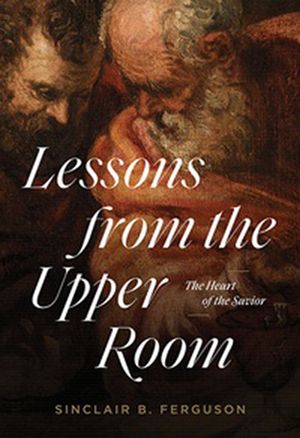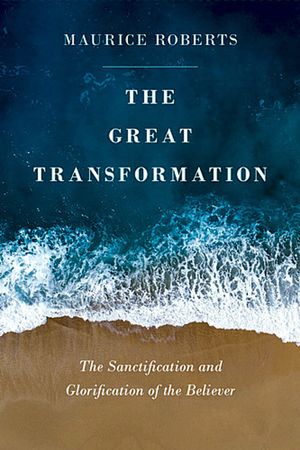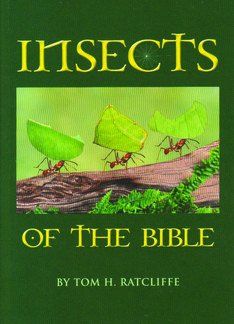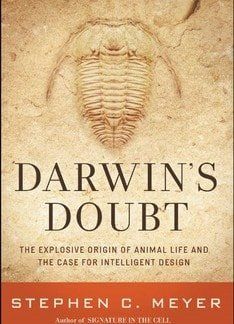Does creation really matter?
That the Bible is the Creator’s direct revelation of himself is seen as irrelevant by most people in our ‘enlightened’ twenty-first century. So how can Christians help restore confidence in the Scriptures within society at large and among churchgoers?
We live in a ‘feelings-led’ culture, where few believe in absolutes and most see morality in relative terms. Typical sentiments include: ‘I’m not hurting anybody’; ‘Most people think it’s OK’; and, ‘Surely, to insist on that is old-fashioned?’
Of course, such thinking is nothing new. The wanton behaviour at the time of the Book of Judges is explained like this: ‘In those days there was no king in Israel; everyone did what was right in his own eyes’ (Judges 17:6; 21:25). Moses told the Israelites: ‘You shall not at all do as we are doing here today – every man doing whatever is right in his own eyes’ (Deuteronomy 12:8).
Solomon’s ancient challenge also has a contemporary ring: ‘Do not be wise in your own eyes; fear the Lord and depart from evil’ (Proverbs 3:7). And the words of Agur are sadly apt to today’s culture: ‘There is a generation that is pure in its own eyes, yet is not washed from its filthiness’ (Proverbs 30:12).
Why is the post-modern approach so entrenched? It is because people no longer respect the absolute values and ideas on which our society was established. And this declension is the end product of many generations of systematic attack on foundational teachings concerning the Christian gospel and morality. Darwin’s ideas on evolution have been a key part of that attack.
‘If the foundations are destroyed, what can the righteous do?’ (Psalm 11:3).
Foundations
The diagnosis is relatively easy, but the cure is far less so. Can we do anything to reverse this trend? Supremely, we need to re-establish the fundamentals of the Christian faith in our churches and society, from the foundations upwards.
The situation today was paralleled in the days of young Samuel, when ‘the word of the Lord was rare … there was no widespread revelation’ (1 Samuel 3:1). The church does have God’s supreme revelation – the Bible – but tragically many church leaders have hidden its truths from the people. This applies especially to the foundational truths of Genesis, the book of beginnings.
The conviction of those involved in ‘creation ministry’ is that nothing less than a return to the teaching of Genesis will ‘stop the rot’. The appalling truth is that all human beings without Christ stand condemned before the burning righteousness of a holy God (John 3:18). The majority think their lives are all right but that doesn’t alter their predicament. Their very self-righteousness – ‘I’m not so bad; I’ve never murdered anyone; I pay my taxes; etc.’ – is an offence to the God who provided the atoning sacrifice of his Son, as the only way a person can be made acceptable in his sight.
Everybody has broken God’s law, and in our post-modern days it is necessary to hold up the mirror of that law so that people recognise their condition before their Judge and Lawgiver (Romans 6:7-13; Isaiah 33:22).
But how will people accept that law if they have no confidence in the Bible and the God of the Bible? And how can they have confidence in the Bible if they think that those chapters of Genesis which reveal God both as Creator and law-giver are historically unreliable?
Practical steps
The doctrine of evolution has been one of the devil’s main strategic weapons against the gospel for a century and a half. Evangelical Christians should not, therefore, be squeamish about taking a stand against it. We all have a part to play in proclaiming the eternal truths of Genesis.
How can we each play our part in this battle? This year brings plenty of opportunities to witness to the truth, as scientists and the media celebrate Charles Darwin’s 200th birthday and the 150th anniversary of his book On the origin of species by natural selection.
Prayer is paramount, but let our prayers have legs! Here are some suggestions as to where our legs might lead us.
Firstly, we should ensure that we are familiar with the actual words of Genesis 1-11. Far too many believers have only scanty knowledge of the accounts of Creation, the Fall, the Flood and Babel.
Secondly, why not invest in resources that will help you and your family understand how the history of the early world (Genesis) connects with the modern-day world? Take advantage of the wealth of resources that God has provided through creationist organisations and consider supporting their ministries.
Thirdly, check out various creationist periodicals that are available, such as Creation magazine1 and take advantage of online articles by reputable creationists.2 Find out what is being taught in your local school and, where appropriate, provide young people and teachers with creation materials that interact with evolutionary errors propagated in the classroom.
Fourthly, raise awareness of these vitally important issues by organising a creation meeting in your area – perhaps showing a thought-provoking video or arranging for an experienced speaker to come.
Fifthly, encourage Christian bookshops and libraries to stock good books and DVDs on these topics. By these and other means, we can all help to influence society and bear fruit for the kingdom of God.
Creation matters
The current rejection of fundamental Bible truths by many professed churches should propel us into action. We should appeal for a return to a faithful stand on Genesis, as well as the great truths of the gospel of Jesus Christ.
Unless people see that Christians actually believe their ‘holy book’, how will we effect change around us? Non-Christians often reject Christ’s teaching because ‘it comes from that book, which science (aka evolution) has shown to be riddled with errors!’
Let us show how the Bible gives us the big picture to understand the principles behind geology, biology, anthropology and astronomy – and of course morality and the gospel! Christians are to savour society as ‘the salt of the earth’ by our Christ-like influence – speaking the truth in love and demonstrating that love by action (Matthew 5:13). But ‘if the salt loses its flavour, how will you season it?’ (Mark 9:50).
If I reject the Word of God in one area, such as the early chapters of Genesis, what right do I have to accuse anyone of rejecting the Bible in another area? Richard Dawkins was right when he said, during one of his infamous attacks on Christianity, ‘It seems to me an odd proposition that we should adhere to some parts of the Bible story but not to others. After all, when it comes to important moral questions, by what standards do we cherry-pick the Bible? Why bother with the Bible at all if we have the ability to pick and choose from it, what is right and what is wrong?’3
Wisdom
Can we seriously expect to have a positive influence for Christ if we are not prepared to believe all that Christ taught? 4 We need a return to humble submission to God’s Word – including its foundational teachings concerning creation: ‘For all those things my hand has made, and all those things exist, says the Lord. But on this one will I look; on him who is poor and of a contrite spirit, and who trembles at my word’ (Isaiah 66:2).
If our beliefs contradict the plain teachings of Moses, Christ and the apostles, we are surely in rebellion against the one to whom we have pledged allegiance. Jeremiah took up this lament in his own day: ‘How can you say, “We are wise, and the law of the Lord is with us?” … The wise men are ashamed, they are dismayed and taken. Behold, they have rejected the word of the Lord; so what wisdom do they have?’ (Jeremiah 18:8-9).
True wisdom is not proportional to the number of college degrees possessed, to brilliance as a public speaker, or to the number of books published. It is found in fearing the Lord and embracing his Word.
The apostle Paul desired that all believers should shun the ‘persuasive words of human wisdom … that your faith should not be in the wisdom of men but in the power of God’ (1 Corinthians 2:4-5).
Philip Bell
The author is CEO of the UK/Europe branch of Creation Ministries International; mailto:p.bell@creation.info
Footnotes:
1. Available from CMI-UK/Europe, 15 Station Street, Whetstone, Leicestershire, LE8 6JS; tel. 0845 6800264.
2. Creation.com has over 6500 fully searchable peer-reviewed articles.
3. The root of all evil, TV Channel 4; broadcast 16 January 2006.
4. See D. Batten & J. Sarfati, 15 reasons to take Genesis as history (Creation Ministries International, 2006).



















